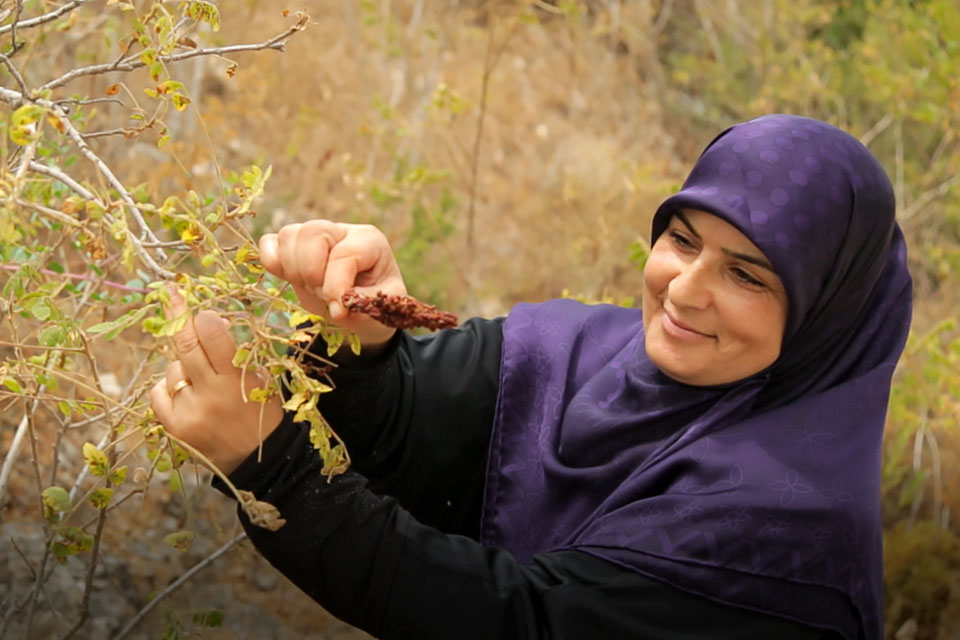Becoming a true businesswoman
Date:

At first, Ibtissam Jaber, 46 and a mother of seven, was hesitant to join her village’s newly established agricultural cooperative. Her husband did not like the idea of her working outside the home and initially forbade her to become a member.
In rural communities in southern Lebanon, prevalent social norms perceive men as the primary breadwinners for the household. Women bear the responsibility for child-rearing, domestic duties and other forms of unpaid labour. These factors, along with limited access to financial credit, vocational education and local leadership, significantly hinder women’s control over their economic resources.
Yet Ibtissam was eager to contribute to her household income, especially after hearing her friends’ stories of growth in a woman- led environment. After some convincing, her husband agreed to let her join the cooperative, organized by the Lebanon Family Planning Association for Development and Family Empowerment (LFPADE), an FGE grantee. She soon learned to prepare and conserve food products with attractive packaging, and to use social media to promote products for sale.
LFPADE trains rural women like Ibtissam to produce, innovate, brand and market traditional Lebanese foods. An agri- food line emerging from four newly founded cooperatives, NESWA, allows women to sell their products to national and regional markets under a competitive business model and consolidated social enterprise.
So far, the project has helped 300 women transition from being small-scale, home-based producers to full-scale, market- competitive entrepreneurs.“This year, I sold at a very well-known agri-food exhibition in Beirut,” Ibtissam exclaims.“Every morning I woke up, sent my children to school and then traveled to Beirut— like a true businesswoman!”
Her products generated US$ 4,000. “Never in my life had I imagined I would earn so much money,” she says.“When I used to sell only from home, I only earned US$ 200 per week.”
Savings have allowed her to invest in new production materials, pay for her children’s school fees and cover other daily expenses.
Ibtissam can also point to changes in family dynamics in her household. “Gender relations have improved. My husband became more flexible,” she says.“And now, one of my daughters is following my footsteps and wants to become a member of the cooperative as well!”
All of these gains have encouraged Ibtissam to help other women by training them as agri-entrepreneurs. She teaches well-honed techniques to produce pickled olives, molasses and jams, working for another former FGE grantee, the Amel Association.